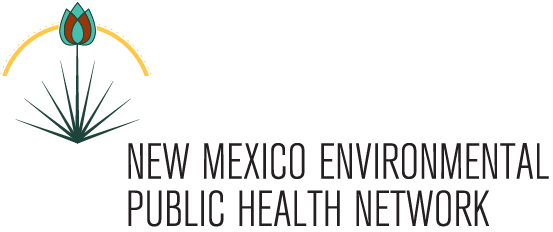Sep 21, 2020 –
September 15, 2020
Liz Bisbey-Kuehn
NMED Air Quality Bureau
525 Camino de los Marquez
Santa Fe, NM 87505
Tiffany Polak
Oil Conservation Division
3rd Floor
Wendell Chino Building
1220 South St. Francis Drive
Santa Fe, New Mexico, 87505
Via email to: nm.oai@state.nm.us and EMNRD.WasteRule@state.nm.us
***
Thank you for your Departments’ commitment to adopting new oil and gas rules to reduce volatile organic compound and methane emissions here in New Mexico. The NM Environmental Public Health Network (NMEPHN), and it below mentioned partners, believes that regulations are critical to protecting New Mexicans’ health, especially those in disproportionately impacted populations and underserved communities, and to address the ever-pressing climate crisis faced by our state and nation. Our organization, compromised of medical, environmental, and public health professionals throughout the state, is committed to bringing a voice to the public policy space to advocate for environmental policies that impact public health. To that end, NMEPHN and our partners have serious concerns with the recently proposed draft New Mexico Environment Department (NMED) rules from air quality and public health perspective.
New Mexico’s methane emissions have been a priority issue for our Network since our inception in 2018. The state’s more than 1 million tons per year of methane emissions, the most potent of all greenhouse gas emissions, is detrimental to our climate. Not only do these emissions cause environmental health impacts on our ever-changing climate, ranging from increased drought to more wildfires, but the resulting ozone from oil and gas emissions also significantly impacts human health.
According to a study published in Environmental Health Perspectives, scientists at the University of York’s Stockholm Environment Institute (SEI) estimate that long-term exposure to ozone is responsible for about 1 million premature respiratory-related deaths each year. Five of New Mexico’s counties, which are home to 97 percent of the state’s gas and oil wells, are at risk of violating federal ozone standards. The spread of COVID-19, especially in underserved populations in rural New Mexico, including the Navajo Nation, has brought even more attention to the impacts of elevated air pollution on public health.
The draft rules include loopholes related to stripper wells and a proposed 15-ton pollution threshold that would exempt the majority of wells in New Mexico from the rules, thereby eliminating the potential for improving the health of populations living near these wells. If we are really going to address the public health issues associated with these emissions, we cannot have these exemptions. We also encourage the NMED to include pneumatic devices in the requirements for leak detection and repair and to require monthly inspections for high-producing well sites.
NMEPHN also believes that the proposed rules on methane waste from the Oil Conservation Division could be improved. The 98 percent capture requirement is appropriate, however rather than statewide, we encourage the state to set this 98 percent capture requirement at a more local (such as county by county) level in order to better protect local communities from pollution hotspots and to ensure that capture requirements are also applied to routine operations such as maintenance and blowdowns. Transparency and veracity of information will be critical moving forward on these rules. We encourage the Division to require independent third-party verification of venting and flaring data and to adopt an annual reporting requirement to ensure that the public can access meaningful data on the impacts of these regulations. Finally, the rules must also ensure that the Division has the power to take stringent actions against those companies not meeting the capture requirements.
Thank you once again for your Departments’ commitment to this important environmental public health work. We look forward to seeing a new draft of regulations that take our concerns into account.
Sincerely,
New Mexico Environmental Public Health Network
Lutheran Advocacy
NM Voices for Children
Moms Clean Air Force, New Mexico Chapter
Health Action New Mexico
American Lung Association
University of New Mexico Population Health Undergraduate Network




